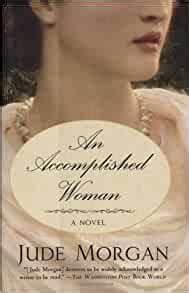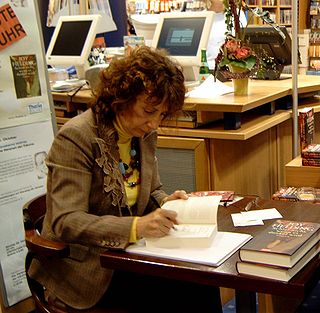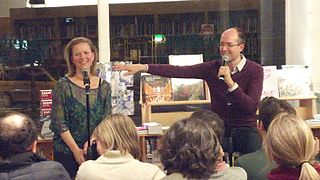A Quote by Philip Roth
You can't write good satirical fiction in America because reality will quickly outdo anything you might invent.
Related Quotes
This fact was something I also learned from this first novel that I needed personal experience to invent, to fantasize, to create fiction, but at the same time I needed some distance, some perspective on this experience in order to feel free enough to manipulate it and to transform it into fiction. If the experience is very close, I feel inhibited. I have never been able to write fiction about something that has happened to me recently. If the closeness of the real reality, of living reality, is to have a persuasive effect on my imagination, I need a distance, a distance in time and in space.
To write weekly, to write daily, to write shortly, to write for busy people catching trains in the morning or for tired people coming home in the evening, is a heartbreaking task for men who know good writing from bad. They do it, but instinctively draw out of harm's way anything precious that might be damaged by contact with the public, or anything sharp that might irritate its skin.
I write my first draft by hand, at least for fiction. For non-fiction, I write happily on a computer, but for fiction I write by hand, because I'm trying to achieve a kind of thoughtless state, or an unconscious instinctive state. I'm not reading what I write when I wrote. It's an unconscious outpouring that's a mess, and it's many, many steps away from anything anyone would want to read. Creating that way seems to generate the most interesting material for me to work with, though.
If you give a writer a pile of blank paper and say you can write anything you like on any subject you want at any length you want, you will probably never get anything at all, whereas if you have 900 words to write, and it's fiction that is somehow op-ed fiction, and it needs to tie in with Halloween . . . okay, those are my constraints, that's where I now need to start building something.
I believe if any of these candidates really understood that America is in the crosshairs of God, and that America will never be made great again. None of them will be able to lift America up but letting the Black man go and giving us justice that will save America... I am almost sure that if they don't do that, it will be said: "We must get rid of Farrakhan." And that will bring about the destruction of America even more quickly.






































